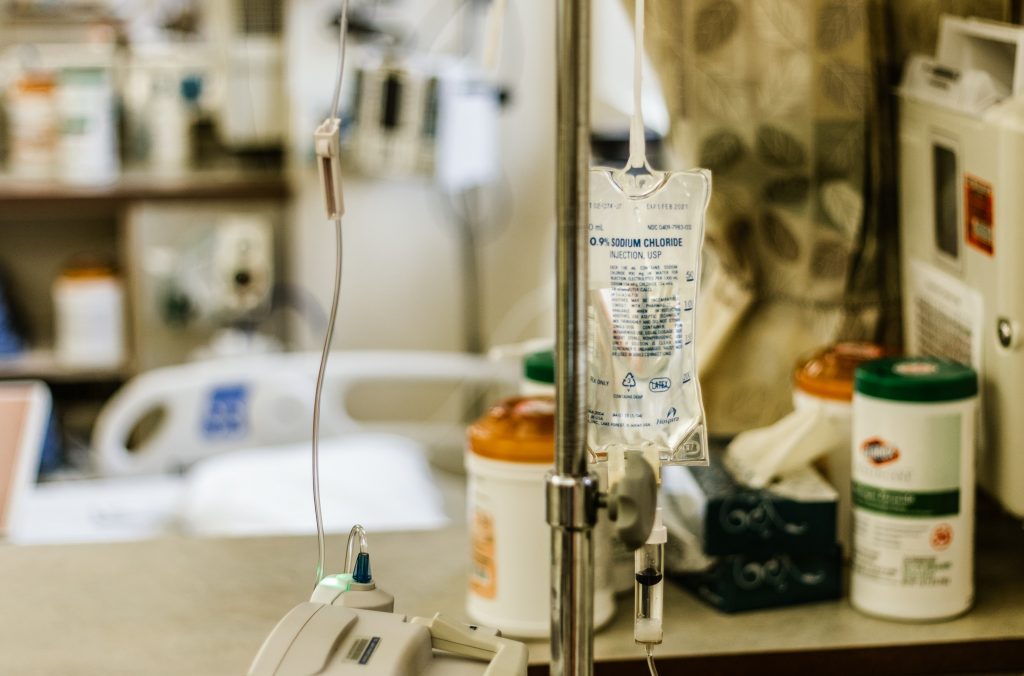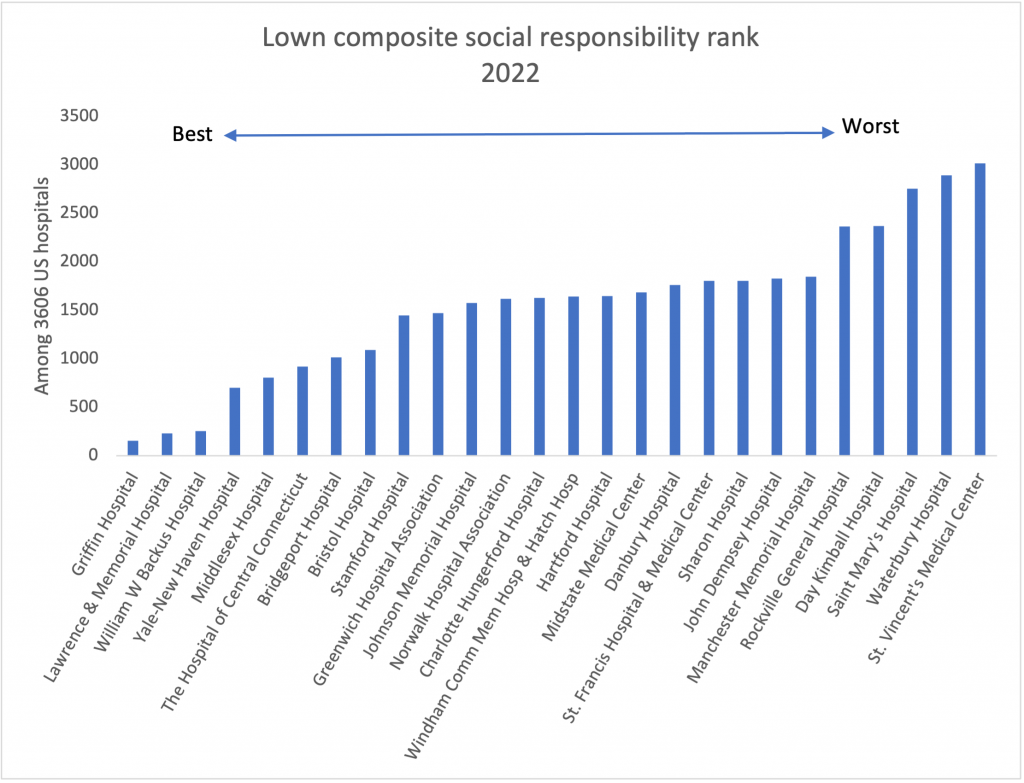consumer info
Analysis: New study finds 1 in 5 households has medical debt that averages $21,687
Having health insurance is no longer the protection it used to be. A pair of new studies shine a bright light on inadequate insurance and its consequences – medical debt. Read more
Read MoreOP-ED: Be careful in making changes when the glass is half full
There is good news on Connecticut health spending – and we can use it. Analysis of new data has found, not surprisingly, that Connecticut residents spend a lot on healthcare. But the good news is that our average annual rate of growth, at 1.8%, was the ninth lowest among states from 2013 to 2019. We…
Read MoreAgain, no CT hospitals on US News Honor Roll
None of Connecticut’s hospitals earned a spot on US News Best Hospitals list this year, as in 2018 and 2011. New York had three hospitals in the top 20 Honor Roll and one Massachusetts hospital made the list. This echoes the Lown Institute’s hospital rankings this year for social responsibility. US News ranked Yale-New Haven…
Read MoreCTNJ Op-Ed: Insurers’ explanations for extreme rate increases don’t make sense
Connecticut’s health insurers are asking state regulators to let them increase premiums an average of 20.4%, far more than last year’s 8.6% request. Insurers in other states are asking for less than half as much. Connecticut insurers are blaming increased demand for services due to COVID backlogs, that deductibles aren’t keeping up with rising costs,…
Read MoreYale BIPOC disability group seeking members with lived experience
The Disability Lived Experience Action Network, D-LEAN, is seeking people who identify as BIPOC with disabilities – mental, intellectual, or developmental. D-LEAN is sponsored by the Yale Program for Recovery and Community Health and funded by the Connecticut Council on Developmental Disabilities. D-LEAN is looking for leaders or emerging leaders. Members will learn about the…
Read MoreCT next to last for at-risk youth, in a good way
Nationally 12.6% of Americans ages 16 to 24 are at-risk compared to 9.7% of Connecticut youth. Connecticut does better than all states but Massachusetts in protecting our youth from harmful conditions such as poor health, neither working nor in school, or drug use. WalletHub compared youth between states on 16 measures of risk including homelessness,…
Read MoreCovered CT opens no-cost health insurance coverage to adults
Friday, the state expanded zero-cost health insurance coverage to include childless adults through the Covered Connecticut program. The program covered parents and child caregivers starting last year, but now any Connecticut adult with qualifying income can enroll in zero-cost health insurance through Access Health CT. The state expects 40,000 people to qualify for the expanded…
Read MoreCT hospitals losing ground on social responsibility
Eight Connecticut hospitals received A grades this year for social responsibility from the Lown Institute, down from twelve last year. No Connecticut hospitals were in Lown’s or US News’ top 20 hospitals in the US. Griffin Hospital ranked #157 in Lown’s composite ranking this year among 3606 US hospitals, the best in Connecticut. Last year…
Read MoreCT ranks 3rd in health system performance, but there’s lots of work to do
Connecticut’s health system performance is the third best in the nation, according to the latest Commonwealth Fund State Scorecard. COVID strongly influenced state’s performance; Connecticut ranked tenth among states on seven measures including COVID mortality, health system stress, and vaccination rates. There is a lot of room for improvement in Connecticut’s health system. Sadly, Connecticut…
Read MoreMore doctors are moving to corporate and hospital employment, jacking up prices & new WI lawsuit
Movement of physicians from independent practice to hospital and corporate employment accelerated during COVID. By January 1st of this year, 74% of physicians in the Northeast were employed by hospitals or corporations according to a report by Avalere Health for the Physicians Advocacy Institute. Half (52%) of Northeastern physicians work for hospitals and 22% for…
Read More







